Newsletter - Winter 2012
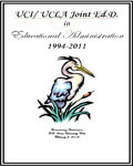 UCI/UCLA Joint Ed.D. in
Educational Administration
UCI/UCLA Joint Ed.D. in
Educational Administration
UCI/UCLA Joint Ed.D. Honors Faculty, Staff, and 77 Graduates During Culminating Celebration
On February 2, 2012, program graduates, teaching and advising faculty, and program staff from the UCI/UCLA Joint Ed.D. in Educational Administration gathered at the UC Irvine University Club to celebrate the culmination of the joint doctoral program.
The inaugural group of students, Cohort 1, had been admitted in 1994. Over the ensuing ten years, the program admitted a total of 101 students. An impressive 77% received their Ed.D. degrees.
The program attracted a diverse group of educators, including principals, assistant principals, department chairs, directors and academic coordinators, K-12 teachers, and college level faculty. The majority received promotions while in the program, and graduates have advanced to positions as superintendents and assistant superintendents, program administrators, teacher leaders, regional and national level researchers, deans, and tenure-track faculty, including some who are working internationally.
During the evening festivities, graduates paid tribute to the program and to the professors who had made such a difference in their lives. One representative comment exemplified their feelings:
On February 2, 2012, program graduates, teaching and advising faculty, and program staff from the UCI/UCLA Joint Ed.D. in Educational Administration gathered at the UC Irvine University Club to celebrate the culmination of the joint doctoral program.
The inaugural group of students, Cohort 1, had been admitted in 1994. Over the ensuing ten years, the program admitted a total of 101 students. An impressive 77% received their Ed.D. degrees.
The program attracted a diverse group of educators, including principals, assistant principals, department chairs, directors and academic coordinators, K-12 teachers, and college level faculty. The majority received promotions while in the program, and graduates have advanced to positions as superintendents and assistant superintendents, program administrators, teacher leaders, regional and national level researchers, deans, and tenure-track faculty, including some who are working internationally.
During the evening festivities, graduates paid tribute to the program and to the professors who had made such a difference in their lives. One representative comment exemplified their feelings:
- Pursuing my doctoral degree at UCI was a decision that completely changed the course of my life. I cannot imagine finding a better place to grow and be amongst like-minded colleagues who believe learning is both a journey and a lifestyle. (Jeneen Graham, Ed.D., University Lecturer, Assistant Director of the UC Irvine Center for Research on Cognition and Learning)
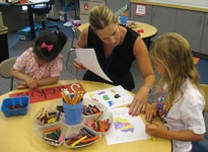
DoE Faculty and Doctoral Students Present at Society for Research in Educational Effectiveness (SREE)
Five DoE professors -- AnneMarie Conley, Thurston Domina, Greg Duncan, George Farkas, and Deborah Lowe Vandell -- and five Ph.D. in Education students -- Anamarie Auger, Tran Dang Keys, Weilin Li, Emily Penner, and Erik Ruzek -- presented at the 2012 Society for Research in Educational Effectiveness (SREE) Conference in Washington, DC.
Each year SREE employs a highly selective process to ensure that the conference features rigorously designed predictive and descriptive studies.
In keeping with the 2012 conference theme, Understanding Variation in Treatment Effects, Department of Education faculty and doctoral students presented their designs, measurements, and data analyses that informed their findings from their research of educational interventions and outcomes. Their presentations reflect the close collaboration that exists in the department between tenure track faculty and Ph.D. students.
* Conceptual Approach to Understanding Treatment Heterogeneity in Human Capital Interventions
- Greg Duncan, Distinguished Professor of Education
- Deborah Lowe Vandell, Professor and Chair
* Preschool Center Quality and Socioemotional Readiness for School: Variation by Demographic and Child Characteristics
- Tran Dang Keys, Ph.D. Student
- George Farkas, Professor
- Margaret R. Burchinal, Professor
- Weilin Li, Ph.D. Student
- Erik A. Ruzek, Ph.D. Student
* Distributional Effects of a School Voucher Program: Evidence from New York City
- Marianne Bitler, Professor
- Thurston Domina, Professor
- Emily Penner, Ph.D. Student
* Does Detracking Work? Evidence from a Mathematics Curricular Reform
- Thurston Domina, Assistant Professor
- Andrew M. Penner, Assistant Professor
- Emily Penner, Ph.D. Student
- AnneMarie Conley, Assistant Professor
* Process Dimensions of Child Care Quality and Academic Achievement: An Instrumental Variables Analysis
- Anamarie Auger, Ph.D. Student
- Weilin Li, Ph.D. Student
- George Farkas, Professor
- Greg Duncan, Distinguished Professor
- Deborah Lowe Vandell, Professor and Chair
Five DoE professors -- AnneMarie Conley, Thurston Domina, Greg Duncan, George Farkas, and Deborah Lowe Vandell -- and five Ph.D. in Education students -- Anamarie Auger, Tran Dang Keys, Weilin Li, Emily Penner, and Erik Ruzek -- presented at the 2012 Society for Research in Educational Effectiveness (SREE) Conference in Washington, DC.
Each year SREE employs a highly selective process to ensure that the conference features rigorously designed predictive and descriptive studies.
In keeping with the 2012 conference theme, Understanding Variation in Treatment Effects, Department of Education faculty and doctoral students presented their designs, measurements, and data analyses that informed their findings from their research of educational interventions and outcomes. Their presentations reflect the close collaboration that exists in the department between tenure track faculty and Ph.D. students.
* Conceptual Approach to Understanding Treatment Heterogeneity in Human Capital Interventions
- Greg Duncan, Distinguished Professor of Education
- Deborah Lowe Vandell, Professor and Chair
* Preschool Center Quality and Socioemotional Readiness for School: Variation by Demographic and Child Characteristics
- Tran Dang Keys, Ph.D. Student
- George Farkas, Professor
- Margaret R. Burchinal, Professor
- Weilin Li, Ph.D. Student
- Erik A. Ruzek, Ph.D. Student
* Distributional Effects of a School Voucher Program: Evidence from New York City
- Marianne Bitler, Professor
- Thurston Domina, Professor
- Emily Penner, Ph.D. Student
* Does Detracking Work? Evidence from a Mathematics Curricular Reform
- Thurston Domina, Assistant Professor
- Andrew M. Penner, Assistant Professor
- Emily Penner, Ph.D. Student
- AnneMarie Conley, Assistant Professor
* Process Dimensions of Child Care Quality and Academic Achievement: An Instrumental Variables Analysis
- Anamarie Auger, Ph.D. Student
- Weilin Li, Ph.D. Student
- George Farkas, Professor
- Greg Duncan, Distinguished Professor
- Deborah Lowe Vandell, Professor and Chair
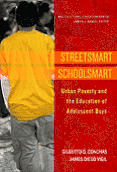
Teachers College Press Publishes Streetsmart Schoolsmart by DoE Professors Gilberto Q. Conchas and James Diego Vigil
Teachers College Press recently published Streetsmart Schoolsmart, by Associate Professor Gilberto Q. Conchas and Professor James Diego Vigil. Streetsmart Schoolsmart presents their research on youth gangs and school success to explain why some boys become disengaged and join gangs while others do not. In describing how urban boys from different ethnic backgrounds (Asian, African American, and Latino) approach schooling and identify the sociocultural factors that affect their choices, Professors Conchas and Vigil concentrate on three areas: (1) the role of marginalized communities in the formation of urban gang youth, (2) the role of community-based organizations in reengaging urban youth, and (3) the role of schools in creating opportunities for urban boys to succeed despite disparities in their economic and social circumstances.
Commenting on their research findings, Professor Conchas explained:
Teachers College Press describes Streetsmart Schoolsmart as “essential reading for educators and all professionals working with urban youth, and anyone concerned with the success of young boys. This book points the way toward important changes that can break the cycle of poverty in American neighborhoods and society.”
Teachers College Press recently published Streetsmart Schoolsmart, by Associate Professor Gilberto Q. Conchas and Professor James Diego Vigil. Streetsmart Schoolsmart presents their research on youth gangs and school success to explain why some boys become disengaged and join gangs while others do not. In describing how urban boys from different ethnic backgrounds (Asian, African American, and Latino) approach schooling and identify the sociocultural factors that affect their choices, Professors Conchas and Vigil concentrate on three areas: (1) the role of marginalized communities in the formation of urban gang youth, (2) the role of community-based organizations in reengaging urban youth, and (3) the role of schools in creating opportunities for urban boys to succeed despite disparities in their economic and social circumstances.
Commenting on their research findings, Professor Conchas explained:
- In Streetsmart Schoolsmart, we observe that even within urban deterioration, people are hopeful and are active agents in their struggle for social mobility. However, poor people in ghettos and barrios do not have the cultural and social capital necessary for economic success. In part, institutions like schools, churches, and community-based organizations serve as the channel for many poor people to acquire capital and use it. Many individuals successfully acquire the capital while the majority does not. Taken together, schools and community-based organizations can provide the necessary scaffolds to lure youth back into conventional paths. Further, they can also keep those doing well off the streets.
Teachers College Press describes Streetsmart Schoolsmart as “essential reading for educators and all professionals working with urban youth, and anyone concerned with the success of young boys. This book points the way toward important changes that can break the cycle of poverty in American neighborhoods and society.”
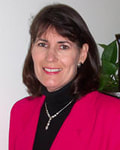
Researchers Receive NSF Grant to Study Persistence of Teacher Change in K-2 Science Classroom Instruction in Rural Schools Following K-2 STARTS Intervention
Associate Professor Judith Haymore Sandholtz and Cathy Ringstaff, Senior Research Associate at WestEd, have received a 3-year National Science Foundation (NSF) grant to study the long-term impact of the K-2 STARTS intervention. K-2 STARTS: Science & Technology Assistance for Rural Teachers and Small Districts, provided assistance to teachers in 16 rural and small districts with high populations of traditionally underserved students. Goals of the four-year program included increasing teachers’ content and pedagogical content knowledge in science, increasing teachers’ use of research-based strategies in science instruction, improving teacher capacity to use science resources, and increasing networking with other teachers.
With the K-2 STARTS intervention nearing its end, Dr. Sandholtz and Dr. Ringstaff are investigating how long teacher changes resulting from professional development last once the intervention is over; which changes in teacher knowledge, skill, attitude, and instructional practice decay most quickly and which last longer; and which changes appear to be long-term or even permanent. They also are interested in the types of continuing support that will be available to the K-2 STARTS teachers following conclusion of the intervention: Will school and district resources and networks continue to provide adequate instructional support for teachers?
Once data collection is complete, the project will compare data collected before and during the four years of the professional development intervention with data to be collected for several years after the intervention ends. It is expected that research findings will be particularly valuable in examining sustainability of teacher change, identifying factors that promote and inhibit long-term changes in instructional practices in K-2 science, and highlighting areas of greatest need for science instruction and teacher professional development in rural settings.
Associate Professor Judith Haymore Sandholtz and Cathy Ringstaff, Senior Research Associate at WestEd, have received a 3-year National Science Foundation (NSF) grant to study the long-term impact of the K-2 STARTS intervention. K-2 STARTS: Science & Technology Assistance for Rural Teachers and Small Districts, provided assistance to teachers in 16 rural and small districts with high populations of traditionally underserved students. Goals of the four-year program included increasing teachers’ content and pedagogical content knowledge in science, increasing teachers’ use of research-based strategies in science instruction, improving teacher capacity to use science resources, and increasing networking with other teachers.
With the K-2 STARTS intervention nearing its end, Dr. Sandholtz and Dr. Ringstaff are investigating how long teacher changes resulting from professional development last once the intervention is over; which changes in teacher knowledge, skill, attitude, and instructional practice decay most quickly and which last longer; and which changes appear to be long-term or even permanent. They also are interested in the types of continuing support that will be available to the K-2 STARTS teachers following conclusion of the intervention: Will school and district resources and networks continue to provide adequate instructional support for teachers?
Once data collection is complete, the project will compare data collected before and during the four years of the professional development intervention with data to be collected for several years after the intervention ends. It is expected that research findings will be particularly valuable in examining sustainability of teacher change, identifying factors that promote and inhibit long-term changes in instructional practices in K-2 science, and highlighting areas of greatest need for science instruction and teacher professional development in rural settings.
 Deborah Lowe Vandell
Professor & Chair
Deborah Lowe Vandell
Professor & Chair
Chair Presents at Key National Education Indicators Workshop, National Academy of Sciences Board on Testing and Assessment
Professor and Chair Deborah Lowe Vandell presented at the National Academy of Sciences' Board on Testing and Assessment (BOTA) during the two-day workshop in January at the National Academies Keck Center in Washington, DC. The workshop was convened to identify education indicators, variables for these indicators, and sources for gathering data. BOTA's identification of indicators is part of a broader project on indicators, referred to as SUSA (State of the USA) that was commissioned by President Barack Obama.
Professor Vandell's presentation focused on indicators for the preschool stage. Information shared with the board members included the following:
Greater exposure to center-care in the preschool period is linked to higher cognitive and academic achievement.
* There has been a recent downturn in the use of center care and an increase in informal care.
* As the economy improves, use of center-care may increase although child care subsidies have been cut.
* Low-income and Latino children are less likely to attend centers.
Quality of care in both centers and child-care homes is linked to cognitive and academic achievement.
* Low-income children are less likely to attend high quality programs.
* No nationally representative estimates of quality of early childhood programs (centers, child-care homes) is available to inform policy or parents.
Reading, math, and approaches to learning in kindergarten predicts later academic achievement.
* Low-income, Black, and Latino children often begin kindergarten substantially behind in these areas.
Poverty, ELL status, race, and ethnicity are linked to education readiness as children enter formal education.
* Poverty rates are expected to increase for the early childhood population.
* Children impacted by poverty, ELL status, race, and ethnicity may need special services.
Professor Vandell advised that data should be drawn from national surveys of education, family income, and child-care options and from existing data bases and then disaggregated by state and child age.
Professor and Chair Deborah Lowe Vandell presented at the National Academy of Sciences' Board on Testing and Assessment (BOTA) during the two-day workshop in January at the National Academies Keck Center in Washington, DC. The workshop was convened to identify education indicators, variables for these indicators, and sources for gathering data. BOTA's identification of indicators is part of a broader project on indicators, referred to as SUSA (State of the USA) that was commissioned by President Barack Obama.
Professor Vandell's presentation focused on indicators for the preschool stage. Information shared with the board members included the following:
Greater exposure to center-care in the preschool period is linked to higher cognitive and academic achievement.
* There has been a recent downturn in the use of center care and an increase in informal care.
* As the economy improves, use of center-care may increase although child care subsidies have been cut.
* Low-income and Latino children are less likely to attend centers.
Quality of care in both centers and child-care homes is linked to cognitive and academic achievement.
* Low-income children are less likely to attend high quality programs.
* No nationally representative estimates of quality of early childhood programs (centers, child-care homes) is available to inform policy or parents.
Reading, math, and approaches to learning in kindergarten predicts later academic achievement.
* Low-income, Black, and Latino children often begin kindergarten substantially behind in these areas.
Poverty, ELL status, race, and ethnicity are linked to education readiness as children enter formal education.
* Poverty rates are expected to increase for the early childhood population.
* Children impacted by poverty, ELL status, race, and ethnicity may need special services.
Professor Vandell advised that data should be drawn from national surveys of education, family income, and child-care options and from existing data bases and then disaggregated by state and child age.
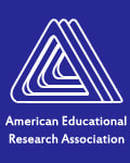
Faculty, Staff, and Doctoral Students Present at 2012 AERA
Twenty-one faculty members and twenty-three doctoral students will be presenting their research, serving as discussants, and participating in administrative meetings and graduate student seminars at the 2012 American Educational Research Association (AERA) meeting April 13 through 17 in Vancouver, Canada. The 2012 theme is "Non Satis Scire: To Know is Not Enough."
Distinguished Professor Greg Duncan is an invited speaker for the Presidential Session "Whither Opportunity? The American Dream, Then and Now: Examining the Relationship Between Increasing Economic Inequality, Schools, and Children's Life Chances." Following the presentation, Dr. Duncan and co-editor Richard Murnane will be participating in a book-signing session for their recent publication Whither Opportunity? Rising Inequality, Schools, and Children's Life Chances.
Twenty-one faculty members and twenty-three doctoral students will be presenting their research, serving as discussants, and participating in administrative meetings and graduate student seminars at the 2012 American Educational Research Association (AERA) meeting April 13 through 17 in Vancouver, Canada. The 2012 theme is "Non Satis Scire: To Know is Not Enough."
Distinguished Professor Greg Duncan is an invited speaker for the Presidential Session "Whither Opportunity? The American Dream, Then and Now: Examining the Relationship Between Increasing Economic Inequality, Schools, and Children's Life Chances." Following the presentation, Dr. Duncan and co-editor Richard Murnane will be participating in a book-signing session for their recent publication Whither Opportunity? Rising Inequality, Schools, and Children's Life Chances.
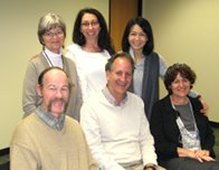 Back: P. Garb, L. Fellus, A. Leggitt
Front: J. Danziger, M. Warschauer, E. Hoter
Back: P. Garb, L. Fellus, A. Leggitt
Front: J. Danziger, M. Warschauer, E. Hoter
"Bridging the Gap Between Cultures in Conflict Through Information and Communication Technology"
Dr. Elaine Hoter traveled from the MOFET Institute in Tel Aviv, Israel, to share how Israel is employing technology to address gaps in understanding among religious Jews, secular Jews, and Israeli Arabs by adapting a Joint Projects Model for Intergroup Collaboration. During her lecture to faculty, student, and staff from departments across the UCI Campus, Dr. Hoter explained how Israel may be the only country in the world where the four major reasons for conflict are present at the same time: religious differences, territorial disputes, ethnic identification, and East/West orientation. The resulting cultural misunderstandings are heightened by separate educational systems, political affiliations, and social and secular-religious relationships.
The Joint Projects Model for Intergroup Collaboration is being employed to bring future teachers into contact with other future educators representing the religious, secular, and Arab communities in Israel. Under the model, education students are organized in groups of six, with two members drawn from Arab colleges, two from Jewish religious colleges, and two from Jewish secular colleges. The online collaborative learning activities in which they engage are based upon creative learning, topic exploration, or skills improvement. Collaboration begins with textual interaction via the Internet, and progresses to aural/oral interaction, and finally to visual encounters. The beginning parallel collaboration leads to sequential collaboration and then to synergistic collaboration around neutral topics. Dr. Hoter explained that the structure is built upon Allport's contact hypothesis, which asserts that with the right conditions contact can reduce bias between groups:
In discussing key components that contribute to success with an online program designed to promote cultural understanding, Dr. Hoter explained that online teaching across cultural groups requires institutional support, interaction for more than one year, team teaching by teachers from different cultures, and equality of status for participants. Collaboration in project management must occur between teaching colleges (administrators), college faculty members/team teaching groups, participating students, organizations carrying out intercultural activities, and researchers. Additionally, there must be sufficient technological knowledge, pedagogical knowledge, and content knowledge.
Research measuring the impact of this approach to preparing teacher candidates has demonstrated significant positive effects over time for three key questions:
Elaine Hoter, Ph.D., is a senior lecturer at Talpiot College of Technology. She taught the first online course in Israel in 1995, English through the Internet, and co-chaired the first online conference for teacher educators. She is a Fulbright scholar and co-founder of the Center for Technology and Multiculturalism http://tak.macam.ac.il.
Dr. Hoter's lecture was sponsored by the UCI Department of Education and the Center for Citizen Peacebuilding.
Pictured at left during the March 13 reception:
Back row: Paula Garb, UCI Anthropology; Leora Fellus, DoE Ph.D. Counselor; Angeli Leggitt, UCI Health Sciences
Front row: Jim Danziger, Political Science; Mark Warschauer, Education & ICS; Elaine Hoter
Dr. Elaine Hoter traveled from the MOFET Institute in Tel Aviv, Israel, to share how Israel is employing technology to address gaps in understanding among religious Jews, secular Jews, and Israeli Arabs by adapting a Joint Projects Model for Intergroup Collaboration. During her lecture to faculty, student, and staff from departments across the UCI Campus, Dr. Hoter explained how Israel may be the only country in the world where the four major reasons for conflict are present at the same time: religious differences, territorial disputes, ethnic identification, and East/West orientation. The resulting cultural misunderstandings are heightened by separate educational systems, political affiliations, and social and secular-religious relationships.
The Joint Projects Model for Intergroup Collaboration is being employed to bring future teachers into contact with other future educators representing the religious, secular, and Arab communities in Israel. Under the model, education students are organized in groups of six, with two members drawn from Arab colleges, two from Jewish religious colleges, and two from Jewish secular colleges. The online collaborative learning activities in which they engage are based upon creative learning, topic exploration, or skills improvement. Collaboration begins with textual interaction via the Internet, and progresses to aural/oral interaction, and finally to visual encounters. The beginning parallel collaboration leads to sequential collaboration and then to synergistic collaboration around neutral topics. Dr. Hoter explained that the structure is built upon Allport's contact hypothesis, which asserts that with the right conditions contact can reduce bias between groups:
- Delaying the visual encounter until the final stages allows participants to engage with each other without the initial impressions that can be evoked by stereotyped images.
In discussing key components that contribute to success with an online program designed to promote cultural understanding, Dr. Hoter explained that online teaching across cultural groups requires institutional support, interaction for more than one year, team teaching by teachers from different cultures, and equality of status for participants. Collaboration in project management must occur between teaching colleges (administrators), college faculty members/team teaching groups, participating students, organizations carrying out intercultural activities, and researchers. Additionally, there must be sufficient technological knowledge, pedagogical knowledge, and content knowledge.
Research measuring the impact of this approach to preparing teacher candidates has demonstrated significant positive effects over time for three key questions:
- To what extent are you willing to meet Arabs, religious Jews, secular Jews?
- Would you be willing to visit _____?
- Are you willing to help ______?
Elaine Hoter, Ph.D., is a senior lecturer at Talpiot College of Technology. She taught the first online course in Israel in 1995, English through the Internet, and co-chaired the first online conference for teacher educators. She is a Fulbright scholar and co-founder of the Center for Technology and Multiculturalism http://tak.macam.ac.il.
Dr. Hoter's lecture was sponsored by the UCI Department of Education and the Center for Citizen Peacebuilding.
Pictured at left during the March 13 reception:
Back row: Paula Garb, UCI Anthropology; Leora Fellus, DoE Ph.D. Counselor; Angeli Leggitt, UCI Health Sciences
Front row: Jim Danziger, Political Science; Mark Warschauer, Education & ICS; Elaine Hoter











